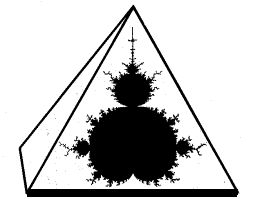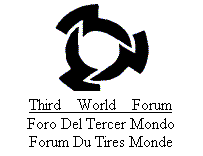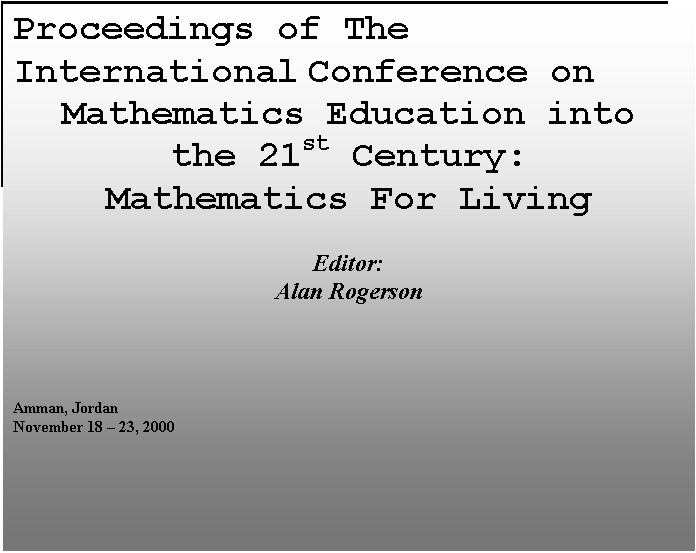 |
 |
||
 |
||



All
Rights Reserved.
No
part of this publication may be reproduced, stored in a retrieval system, or
transmitted in any form or by any means, electronic, mechanical, photocopying,
recording or otherwise, without the prior permission of the copyright holder.
Proceedings
of the International Conference on "Mathematics for Living"
Jordan, November 18-23, 2000
Sponsored
By
The
Mathematics Education into the 21st Century Project
The Third World Forum
Consortium
of Jordanian Public Universities
The National Center for Human Resource Development -Jordan
Ministry
of Education - Jordan
The
Hong Kong Institute of Education
International
Program Committee
Chairman Dr. Alan Rogerson, International Coordinator of the Mathematics in Society Project (Australia).
Dr Khaled Abuloum, Math Education, University of Jordan (Jordan).
Dr Farouq A.
Almeqdadi, Math Education, Yarmouk University (Jordan).
Professor Roberto Baldino,
UNESP (Brazil).
Dr. Andy Begg , Senior Lecturer in Mathematics Education, University of Waikato (New Zealand).
Dr. Donna F. Berlin, Mathematics, Science, and Technology Education, The Ohio State University (USA)
Prof. Dr. Werner Blum, University of Kassel (Germany).
Professor Ubiratan D'Ambrosio, Emeritus Professor of Mathematics, State University of Campinas/UNICAMP, (Brazil).
Professor Bruno D'Amore, University of Bolgna (Italy).
Prof Dr William Ebeid, Emeritus Professor, Dept. of Curriculum and Instruction, Faculty of Education, Ain Shams University (Egypt).
Professor Paul Ernest, Professor of the Philosophy of Mathematics Education, University of Exeter (UK).
Dr Hanan Innabi, Researcher, National Centre for Human Resouces Development (Jordan).
Prof. Dr. Gabriele Kaiser,
Hamburg University (Germany).
Prof Dr Fayez Mina, Dept. of Curriculum & Instruction, Faculty of Education, Ain Shams University (Egypt).
Rob Money, Former President of MAV &Local Organiser for Australia 2001 Conference (Australia).
Prof Dr M. Ali M. Nassar, Director of Planning Center, Institute of National Planning (Egypt).
Professor Lionel Pereira Mendoza, Associate Professor, Division of Mathematics, National Institute of Education (Singapore).
Prof. Medhat Rahim, Lakehead University, Faculty of Education (Canada).
Professor Dr. Alicia Villar
Icasuriaga, Instituto de Profesores
"Artigas" (IPA), Montevideo, (Uruguay)
Dr. Arthur L. White, Mathematics, Science, and Technology Education, The Ohio State University ( USA)
Professor. Wacek Zawadowski, Warsaw University (Poland).
National
Organizing Committee
Chairman Prof.
Farid K. Abu Zeinah, Prof, of Math Education, Hashemite University.
Prof. Ghazi Hamzeh, Prof of Math Education, Head of Mathematics Department, Al-albat University.
Dr Abdallah Ababneh, Math Education, Dean of Faculty of Educational Sciences, Al-Husan University.
Dr Khaled Abuloum, Math Education, University of Jordan.
Dr Farouq A. Almeqdadi, Math Education, Yarmouk University.
Dr Zeid Al-Bashaireh, Science Education, Mu'tah University.
Ms Nadia J. Sweis, Economic and Math, Al-balqa Applied University.
Mr. Ahmad Ghassab Alhawamdeh, General Manager of Irbid Directorate,
Ministry of Education.
Dr Khattab M.
Abu Libdeh, Researcher, National Center for Human Resources Development.
Foreword
This
volume contains papers presented at the International
Conference on Mathematics Education into the 21st Century: Mathematics for
Living held in Amman, Jordan from November 18-23, 2000. The Conference arose
out of the work of the Mathematics
Education into the 21st Century Project - a non-commercial
international educational initiative founded in 1986. The Project is dedicated
to the improvement of mathematics education worldwide through the publication
and dissemination of innovative ideas. For further information on the history
and ongoing work of the Project please refer to http://www.vsg.edu.au/egypt99/.
The
Mathematics Education into the 21st Century Project has been
fortunate in obtaining in Jordan the local support and cooperation of the Ministry
of Education, The National Center for Human Resource Development and a Consortium
of Jordanian Public Universities. In addition the Conference has been
supported internationally by The Third
World Forum, The Hong Kong Institute
of Education and The Australian
Association of Mathematics Teachers. The Conference is also grateful for the
financial support and sponsorship of Texas Instruments, QED, Greygum and
Function.
It
has been my pleasure to read all of these contributions and to edit them for the
Proceedings. The overall purpose of the editing was, as far as possible, to
retain the individual styles, in line with our minimal instructions for the
preparation of papers. These Proceedings contain in order: Plenary Papers, Other papers
in alphabetical order of the Presenter(s) in Jordan (indicated in bold),
English Abstracts of papers in Arabic, Abstracts of the Workshop
Presentations. Please note that some diagrams and illustrations have had to
be converted to black and white for these Proceedings but were clearer in their
original full colour.
I
sincerely thank all of the contributors for their time and effort. Thanks are
especially due also to our Jordanians colleagues in the National Organising
Committee for their patience, hard work and unfailing support, without which the
Conference, and these Proceedings, would not have been possible.
It
should be clear from the variety and quality of the papers in these Proceedings
that the conference has attracted many innovative mathematics educators from
around the world. I feel sure that these Proceedings will be a useful step in
reviewing past work and looking ahead to the future. So much so that they will
serve as a foundation for a new exciting International Initiative to be launched
during the Jordan Conference: The Super Course of the Future!
Dr.
Alan Rogerson
Chaiman
of the Programme Committee
Contents
Problems of Representing Concepts in the Learning of Mathematics (english version)
Bruno DAmore (Italy)
Bruno DAmore (Italy)
Reaching
Gender Equity in Mathematics Education(1)
Gila Hanna (Canada)
Reaching
Gender Equity in Mathematics Education(2)
Sharleen
D Forbes (New Zealand)
Theorizing
for Non-theoretical Approaches to Mathematics Education
Fayez M. Mina (Egypt)
Empowerment
of Students How can we succeed?
Lionel Pereira Mendoza (Singapore)
Designing
the mathematics curriculum in Malaysia: Making mathematics more meaningful.
Noor
Azlan Ahmad Zanzali (Malaysia)
Evaluating
the levels of problem solving abilities in mathematics
Noor
Azlan Ahmad Zanzali & Lui Lai Nam (Malaysia))
Using
conceptual maps and semi-structured interviews in teaching mathematics.
M. Trombetta, E.
Azzali, M. Bassi, S. Beltrame. D. Bitto, M. Calvani, G. Catanese,
A. Margari, S. Sclippa, S.
Stella, G. Trifiletti, I. Visintin (Italy)
Coloring
Dynamical Systems in the Complex Plane
Francisco
Garcia, Angel Fernandez, Javier Barrallo &
Luis Martin (Spain)
Learning
Heritage Restoration, Learning Mathematics
Santiago
Sanchez-Beitia & Javier Barrallo
(Spain)
Donna
F. Berlin & Arthur L. White (USA)
About
Students Understanding and Learning the Concept of Surface Area
Cinzia Bonotto (Italy)
L. Brunelli (Italy) & L. Gattuso (Canada)
Reflections
on an Academic Support Program
Vivien
Budge (South Africa)
Mathematics
as Seen by Pupils and Teachers: A Way Forward
Indira
Chacko (Zimbabwe)
Connecting
Mathematics Problem Solving to the Real World
Erik De Corte, Lieven Verschaffel (Belgium)&
Brian Greer (USA)
Videos
as a Learning Support to Improve Mathematics Education. I.
Advantages and Methodology
Soledad ESTEBAN,
María P. GONZÁLEZ & Luis TEJERO (Spain)
Videos
as a Learning Support to Improve Mathematics Education. II.
A Practical Example
Soledad
ESTEBAN, María P. GONZÁLEZ, Carlos ROMERA & Luis TEJERO (Spain)
Volume
Measurement and Conservation in Late primary School Children in Cyprus
Stamatis Voulgaris & Anastasia
Evangelidou (Cyprus)
Mathematical
Modeling, Technology, and the Environment
Beverly
J. Ferrucci & Jack A. Carter (USA)
Mathematics
at Distance Education University for Students with Visual Sensorial Discapacity
Leví Genoveva, E. Ramos, E. Del Campo, P. Rejas (Spain)
Munirah
Ghazali & Noor Azlan Ahmad Zanzali
(Malaysia)
Assessment
of applied numeracy skills among post 16 students and trainees.
John Gillespie (UK)
Spinning
Threads between Students, Teachers, Life and Mathematics Coarse or Silken
Threads?
Pamela Hagen (Canada)
Tony
Harries & Rosamund Sutherland (UK)
The
Role of the Mathematics Coordinator in School-based Curriculum Development
Irene Hazou-Makhoul (Palestine)
Advantages
and disadvantages of using real world problems in teaching mathematics.
Agata
Hoffmann (Poland)
Geometric
Thought Within School Mathematics Textbooks in Jordan
Amal Khasawneh (Jordan)
The
Structure of Triads and Pilot Experiments
Jana
Kratochvílová (Czech Republic)
Theory
and Application of Majority Vote - From Condorcet Jury Theorem to Pattern
Recognition
Louisa Lam (Hong Kong)
Through
the bars. Learning and Teaching Mathematics in Jail
Aldo Frezzotti, Federico
G. Lastaria & Stefano Mortola (Italy)
Living
in the Real-World-System: technology and mathematics as Systemic Thinking
Mediators
Enrica Lemut (Italy)
N.
Mahir, N. Çetin, S. Canbek (Turkey)
Computer
facilitation in understanding of some notions in ordinary differential equations
Magdalena
Makowiak & Adam Marlewski (Poland)
Innovative
paths for approaching rational numbers from the structural point of view
Nicolina A. Malara (Italy)
From
Mathematics for Living to Living for Mathematics
George
Malaty (Finland)
A
Consistency Qualitative Analysis of Complex Real-Life Models
Meznik
I,
& Dohnal M. (Czech Republic)
Data
Interpretation in the 21st Century: Issues in the Classroom
James
Nicholson & Gerry Mulhern (UK)
CLIL
and Mathematics Education
Jarmila Novotná &
Marie Hofmannová (Czech
Republic)
Quality
Function Deployment applied to the design of Educational Intranet
Beatriz Ontiveros & Ismael Soto (Chile), M.Luisa Wolomberg,
Liliana M Martinez, Genoveva Bouyssi & Liliana Rios (Argentina)
Nevin Orhun (Turkey)
Angela Pesci (Italy)
A
Classroom Use of the Geometers Sketchpad in a Mathematics Pre-Service Teacher
Education program
Medhat
H. Rahim (Canada)
The
Modelling of the Large Investment
Projects Problems, Limits and Solutions.
Karel Rais
(Czech
Republic)
Graphic
representations and algebraic expressions: an example of software mediation
Maria Reggiani (Italy)
Statistics
and Measuring: an experimental educational research in Italian High Schools
Silio Rigatti Luchini, Maria Pia
Perelli & Giorgio Tomaso Bagni (Italy)
Nicoletta Sala (Switzerland)
Fractal
Models in Architecture: A Case of Study
Nicoletta Sala (Switzerland)
Alive
Maths: Living Mathematics on the Web
Nathalie
Sinclair (Canada)
The
role of History of Mathematics in research in Mathematics Education
Filippo Spagnolo (Italy)
Di Leonardo M.V., Marino T., Spagnolo
F. (Italy)
Using
error correction exercises with primary children
Mike
Spooner (UK)
Nadia
Stehlíková (Czech Republic)
The
problem of integration the formal knowledge of the pupil with the non-formal one
(showed on the example of the similar figures)
Ewa Swoboda (Poland)
A
Study about the Influence of Cultural Beliefs on Probabilistic Thinking amongst
pupils aged from ten to fourteen
M.
J. Cañizares and A. Vallecillos (Spain)
English
Abstracts of papers in Arabic
Abstracts
of the Workshop Presentations.